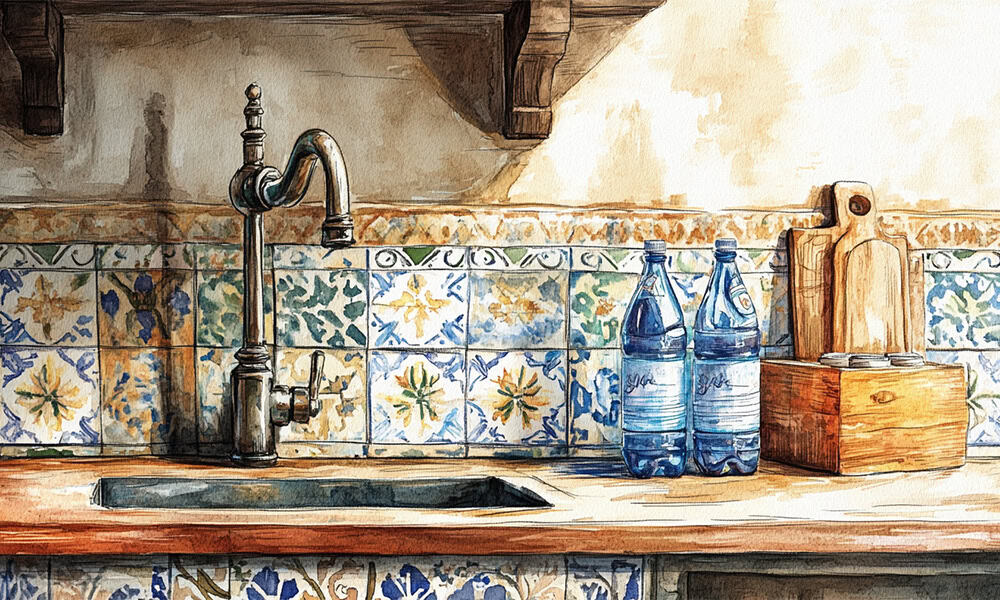She’s trying to do everything right. My wife set her alarm extra early. She got up with plenty of time to futz around in her garden, lay out the kids’ uniforms for school, she even got her still sleeping husband’s coffee primed to brew, all with enough time to exercise before heading off to work. As I sit in my rocking chair, reading the news, she emerges from the other room sweaty from a workout and heads to the bathroom for a shower. Seconds later she reappears visibility ticked off. There’s no water.
Since moving to Costa Rica, we have made our lives on the coast of Guanacaste, a land renowned for beautiful beaches that can be enjoyed under cloudless skies for large portions of the year. While lack of rain makes for a great beach day, it isn’t great for the area’s water supply. As a result, by the end of every dry season, there’s at least some issue with the amount of water available to the community.
A lot has changed in the 13 or so years that we’ve lived here. There has been a steady stream of construction throughout Guanacaste and the demand for water has increased right along with it. In our area there was a big project to pipe in water from farther inland and as far as I know it has had at least some positive effect in satiating the community’s thirst. Are the levels of development outpacing the area’s ability to supply everyone with enough water? I don’t have the information to answer that question. What I do know is that you’d better have some water squirreled away by the end of dry season or you might be left high and dry.
Preparation is the key. In the little beach house where we used to live, we had a small water tank that could store a few days’ worth of water even when nothing was coming from the town’s pipes. This is definitely the way to go. There had to be a big problem for our family to use up hundreds of gallons of water from the tank. Unfortunately, our current rental does not come equipped with a water tank. When the water stops flowing from the town’s wells, we get that sad air swooshing noise instead of water when we turn on the taps.
Our current water storage system consists of a mess of six-liter water bottles that we have saved up from when the grandmas visit and need to drink bottled water because our water upsets their bellies. These bottles are hidden in storage areas or under sinks just waiting for their moment to shine. The precious potable water they hold is used to wash hands, brush teeth, boil pasta, and wash only the most important pans, plates, and utensils that you just can’t live without. In an emergency they can also be used to shower the fanciest members of the household who protest the other method cleaning oneself because she doesn’t want to smell like chlorine.
That brings us to the other, non-potable, reservoir of water available to my family in our current location, the pool. Of the many homes we’ve inhabited in our time in Costa Rica, this is the first time we’ve had a pool. It’s almost hilariously tiny, but it has been perfect for us to play in and, importantly, it is full of water when the town water is out. When the shower isn’t an option, the boys and I settle for ‘pool clean.’ Yes, the water’s a little cloudy and yes, one does end up with an air of chlorination afterward, but it has to be better than nothing, right? Besides its ability to at least slightly clean the men of the family, the pool has another use, a big bucket of pool water makes the household’s toilets function.
Periodic lack of water has been part of our reality since moving to Costa Rica. It’s definitely not our favorite part of living here but it usually doesn’t last too long and with proper preparation, it’s not the end of the world. It does come with an upside though, a level of appreciation for water when you have it. As sad as yelling “There’s no water!” is, you do get a little jolt of joy when you turn the tap and water comes flowing out and you get to yell, “The water’s back!”
About the Author
Vincent Losasso, founder of Guanacaste Wildlife Monitoring, is a biologist who works with camera traps throughout Costa Rica.






